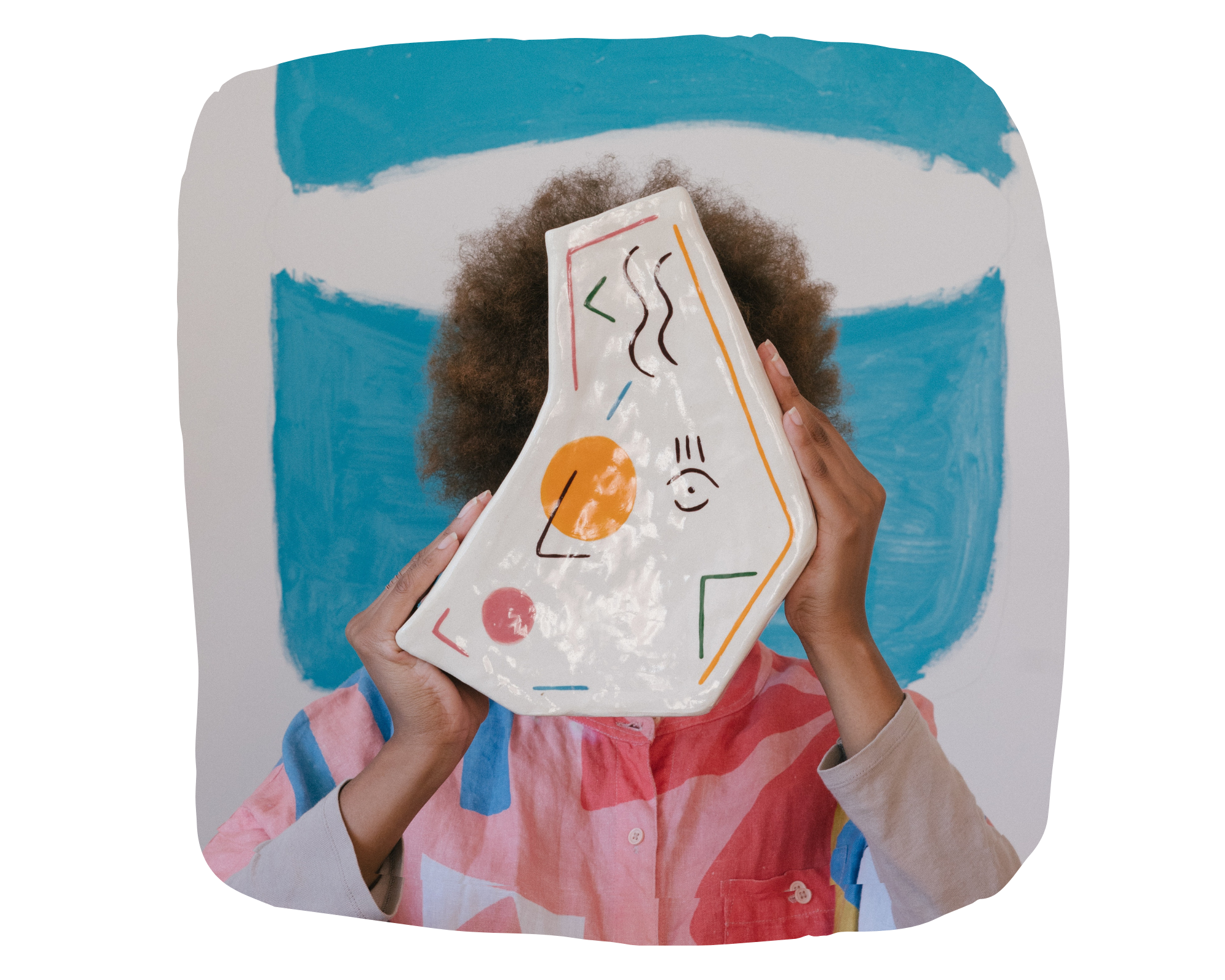Ringing in the New Year with Self Energy | Growth & Healing with IFS
Our culture can put an intense amount of pressure on us to use the blank slate of the New Year to create a “new you.” Reflecting on the habits we tried to establish last year can trigger feelings of self-criticism and doubt. We’ve all had the experience of setting out in January, full of energy, eager to establish new habits in the New Year, only to watch ourselves lose steam and stamina as early as February.
Reflect on your connection to Self and the natural world as you read this blog by IFS-TC clinician Stephen Toriello.
How Grief Affects Parts
Grief proceeds at its own pace. It is a visitor that can arrive in unexpected moments before leaving just as quickly. Sometimes it settles in and stays for a long while, taking the mind and heart along well-trodden paths to wander through different thoughts, memories, emotions, or sensations relating to the loss. But one thing is clear: everyone’s experience with grief is different.
Discover how grief affects parts as you read this blog by IFS-TC clinician Alicia Dabney.
Taking Internal Family Systems Outdoors
Whether examining the microscopic layers of the universe or the vastness of the cosmos, it is easy to feel a range of positive emotions when witnessing the miracle of nature. In IFS therapy, we understand the peace, connectedness, compassion and harmony that we can easily feel when we are in natural settings, as qualities of human nature – the true Self.
Reflect on your connection to Self and the natural world as you read this blog by IFS-TC clinician Stephen Toriello.
What are Parts and Who is Self?
The terms Parts and Self come up in anything related to Internal Family Systems℠(IFS), but what are they really?
Check out this blog written by IFS-TC clinician Alicia Dabney to learn more!
Uniting the Team: Resolving Internal Battles with IFS
Different protector parts use different strategies: managers will seek to pre-empt emotional pain by keeping things in control, while firefighters will react to emotional pain that has been triggered by trying to numb, distract, or douse the feelings. What do these two types of protectors have in common? They both do what they can to protect the most vulnerable, wounded, exiled parts of us that have taken on burdens and beliefs as a result of these painful experiences.
Creative Externalization How Expressive Arts and IFS Bring Your Inner World to Life Part II: Embodiment, Movement, and Role-Play
Internal Family Systems℠ (IFS) is not a “one size fits all” process. It allows for a tailored approach to healing that encompasses various life experiences, backgrounds, personalities, and reasons for seeking therapy. External factors are not the only consideration. Each person has a uniquely individual internal system—not unlike a one-of-a-kind fingerprint—with different needs and responses that will inform the way IFS therapy unfolds.
Continue reading to learn more!
Mindfulness, Meditation and Internal Family SystemsSM
Maybe you’ve tried meditation for yourself or have installed one of the popular meditation apps on your phone. Whether you have a regular practice, have intermittently tried it before giving up on it, or are merely curious, this article explores the Internal Family Systems (IFS) approach to mindfulness, and how these practices can augment your progress in therapy.
Continue reading to learn more!
Building Trust in YourSelf - IFS practices to help you get there
The IFS approach is collaborative in nature and your IFS therapist will probably encourage you to stay connected to your parts during the week or to notice what’s happening inside as you go about your day. Incorporating small practices of your own every day can accelerate your progress toward your goals, support you as you continue to get to know your inner world of parts, and start building internal trust in your core Self as the leader of your system.
Continue reading to learn more!
Creative Externalization: How Expressive Arts and IFS Bring Your Inner World to Life Part I: Art Therapy and Visual Form
Externalizing in IFS involves representing your parts concretely using a variety of approaches, materials, and techniques such as visual art, mapping, movement, sculpting, psychodrama, music, and writing. Through these processes, the inner world is made visible and tangible in a way that lends greater clarity and perspective or provides the opportunity to interact with a part in new ways.
In this blog, clinician Alicia Dabney explores some of the benefits and unique considerations of externalizing! Continue reading to learn more.
Supporting Your Neurotype with Internal Family Systems℠
Though neurodiversity encompasses the full and vast spectrum of cognitive traits and experiences, it is those with neurodivergence who are more likely to be marginalized. As we increase the acceptance and understanding of human diversity in general and advocate for more affirming care for all, so too can we offer adaptations of IFS to meet the needs of all clients.
In this blog, clinician Clarissa Harwell explores how to support your Neurotype with Internal Family Systems! Continue reading to learn more.
From Reacting to Responding: Self-led Parenting with IFS
Do you have the privilege of being a parent? When was the last time you had a negative thought about your child? If you’re blessed like I am, it wasn’t all that long ago. This is a judgment-free zone so go ahead and acknowledge any recent times you’ve let those not-so-kind thoughts fly.
In this blog, clinician Clarissa Harwell explores how to Self-led Parenting with IFS! Continue reading to learn more.
Inner Critic All-Stars: How IFS Therapy Turns Agitators into Allies
Most of us are familiar with criticism. Whether it comes from a partner, a friend, a colleague, or an online troll, it can hurt, incite anger and defensiveness, and make us doubt ourselves. Criticism can cause ruptures in our relationships. But what about when the criticism comes from within, when we feel like we’re our own worst enemy?
In this blog, clinician Clarissa Harwell explores Inner Criticism from an IFS perspective, continue reading to learn more!
Dear Firefighter: What the IFS Model Can Offer to Those with Suicidal Thoughts
Just like any other mental health provider, IFS therapists are still tasked with assessing client safety, warning signs, external factors, and taking appropriate action to keep clients safe when they are in crisis. However, when weekly individual therapy is determined to be the appropriate level of care, the IFS model can offer a compassionate and non-pathologizing approach to working with suicidal parts.
In this blog, learn more about what the IFS model can offer to those with suicidal thoughts
Tips for Getting Started with IFS Therapy
In this second installment of our two-part intro series, we continue looking at what it’s like to be a client experiencing Internal Family SystemsSM (IFS) therapy, developed by Richard Schwartz, Ph.D.
Those who are new to IFS will find some helpful tips on getting started from IFS Telehealth Collective Co-founder and Lead Trainer, Mariel Pastor LMFT. Read to learn more!
Take A Look Inside an IFS Therapy Session
Like many types of therapy, Internal Family SystemsSM (IFS) is most helpful when you feel comfortable with your therapist. This comfort and emotional safety are what we call the therapeutic alliance, and it describes how you and your therapist interact and create change together.
Is IFS Therapy right for you? Read our blog to find out!
BeFriending the Blues: How IFS Therapy Can Help Heal Depression
If you’ve ever experienced a bout of depression, you’ve likely felt at its mercy — as though it has taken over your whole world. But what if the feelings that come with depression are actually worth befriending?
In this blog, clinician Clarissa Harwell explores depression from an IFS perspective to help you discover why some parts of you feel what they feel, what they do and how you can heal.
Tormentors or Just Mentors? How IFS Therapy can Help you Discover The Gift that Keeps on Giving
The holiday season is rife with challenges that often knock us off-center or destabilize us in some way. Developer of IFS Therapy, Dick Schwartz, calls these his tor-mentors, “By tormenting they mentor me because they trigger key wounds and defenses that I need to heal."
In this blog, learn more about how these "tor-mentors" are actually among our most valuable teachers!
Using IFS for Self-led Activism
Are you passionate about social justice issues? There’s certainly no shortage of important issues facing us! Follow along in this important process as we walk through an exercise in accessing the Self to help you process through your feelings related to these important issues.
Hear from our clinician Clarissa Harwell about the Self-led healing IFS offers for various aspects of activism!
When the Past Is Still Present: How IFS Therapy Transforms Trauma
As we find our way in this new, post-pandemic world and redefine how to be in safe togetherness, what all are we carrying with us from 15 months of isolation, significant loss, and instability? How does the shock of sudden and forced transitions live in your body?
Learn more about the collaborative healing process that IFS clients can trust to heal them from their trauma!
Seeing the Rainbow Through the Lens of IFS: All parts and genders are welcome here
New clients often wonder how their queer and/or trans or questioning identity will be cared for in therapy. It can be difficult to explore for many clients, and each person experiences their identities individually and within their environment.
Learn more about the affirming, powerful lens that IFS offers for members of the LGBTQ+ community!




















